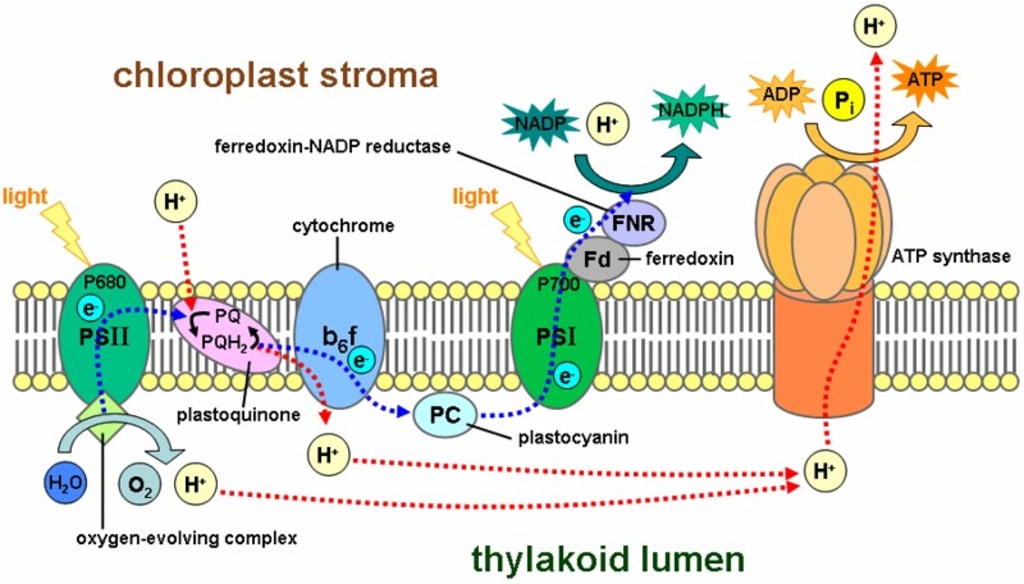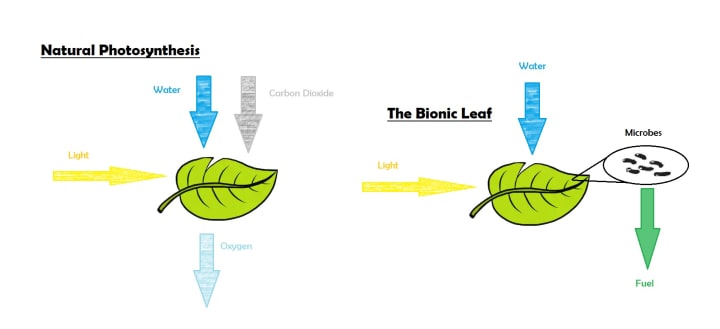Photosynthesis
convert light energy into chemical energy

Introduction
Photosynthesis is a fundamental biological process that plays a crucial role in the functioning of life on Earth. It is the process by which plants, algae, and some bacteria convert light energy from the sun into chemical energy in the form of organic molecules, such as glucose. This energy is used by organisms for growth, reproduction, and other metabolic processes, and is essential for the survival of many species, including humans. In this article, we will explore the process of photosynthesis, its importance for life on Earth, and its role in mitigating climate change. We will also examine the factors that affect photosynthesis, both natural and human-induced, and discuss the implications of these factors for the environment and sustainability.

Photosynthesis is one of the most important biological processes on Earth. It is the process by which plants, algae, and some bacteria convert light energy from the sun into chemical energy in the form of organic molecules, such as glucose. This energy is then used by the organism for growth, reproduction, and other metabolic processes.
Photosynthesis takes place in two stages: the light-dependent reactions and the light-independent reactions. During the light-dependent reactions, light energy is absorbed by pigments, primarily chlorophyll, in the thylakoid membranes of chloroplasts. This energy is used to generate ATP and NADPH, which are energy-rich molecules that provide the energy necessary for the light-independent reactions. The light-independent reactions, also known as the Calvin cycle, use the ATP and NADPH to synthesize organic molecules, such as glucose, from carbon dioxide in the atmosphere.
The process of photosynthesis is critical for life on Earth because it produces the oxygen that is essential for respiration in animals and other organisms. It is estimated that photosynthesis produces about 130 billion tons of oxygen per year, which is enough to maintain the oxygen levels in the Earth's atmosphere.
Photosynthesis is also important for the production of food. Most of the food that humans and other animals consume is derived from plants, which produce it through photosynthesis. Photosynthesis is also the basis for many commercial products, such as biofuels, pharmaceuticals, and industrial chemicals.
The process of photosynthesis is affected by many environmental factors, including temperature, light intensity, and availability of water and nutrients. For example, plants grow best in moderate temperatures and with adequate water and nutrients. Excessive heat, drought, or nutrient deficiencies can all negatively impact photosynthesis and reduce the growth and productivity of plants.
Another important aspect of photosynthesis is its role in mitigating climate change. Photosynthesis removes carbon dioxide from the atmosphere and converts it into organic molecules, which are stored in plants and other organisms. This process, known as carbon sequestration, helps to reduce the levels of carbon dioxide in the atmosphere, which is a major contributor to global warming.
Photosynthesis is also affected by human activities, such as deforestation and land-use changes. These activities can reduce the amount of photosynthetic organisms in an ecosystem, which can lead to a decrease in the amount of oxygen produced and an increase in the amount of carbon dioxide in the atmosphere. Therefore, it is important to understand and manage the impact of human activities on photosynthesis and the environment.
In conclusion, photosynthesis is a critical biological process that produces the energy and organic molecules necessary for life on Earth. It is important for the production of food, the production of oxygen, the mitigation of climate change, and the maintenance of the Earth's ecosystems. Understanding the process of photosynthesis and its environmental impacts is crucial for the sustainable management of our planet's resources.
photosynthesis is a vital process that produces energy and organic molecules necessary for life on Earth. It is crucial for the production of oxygen, food, and commercial products, as well as for mitigating climate change. Human activities can have a significant impact on photosynthesis and the environment, underscoring the need for sustainable management of our planet's resources. Understanding the process of photosynthesis and its impacts is essential for ensuring the health and survival of our planet's ecosystems.
About the Creator
Love The Green
Welcome to my page,I hope to share my experiences, insights, and knowledge with fellow nature enthusiasts.Together, we can celebrate the wonders of the natural world, and work to protect and preserve it for future generations to enjoy🌿🌲






Comments
There are no comments for this story
Be the first to respond and start the conversation.